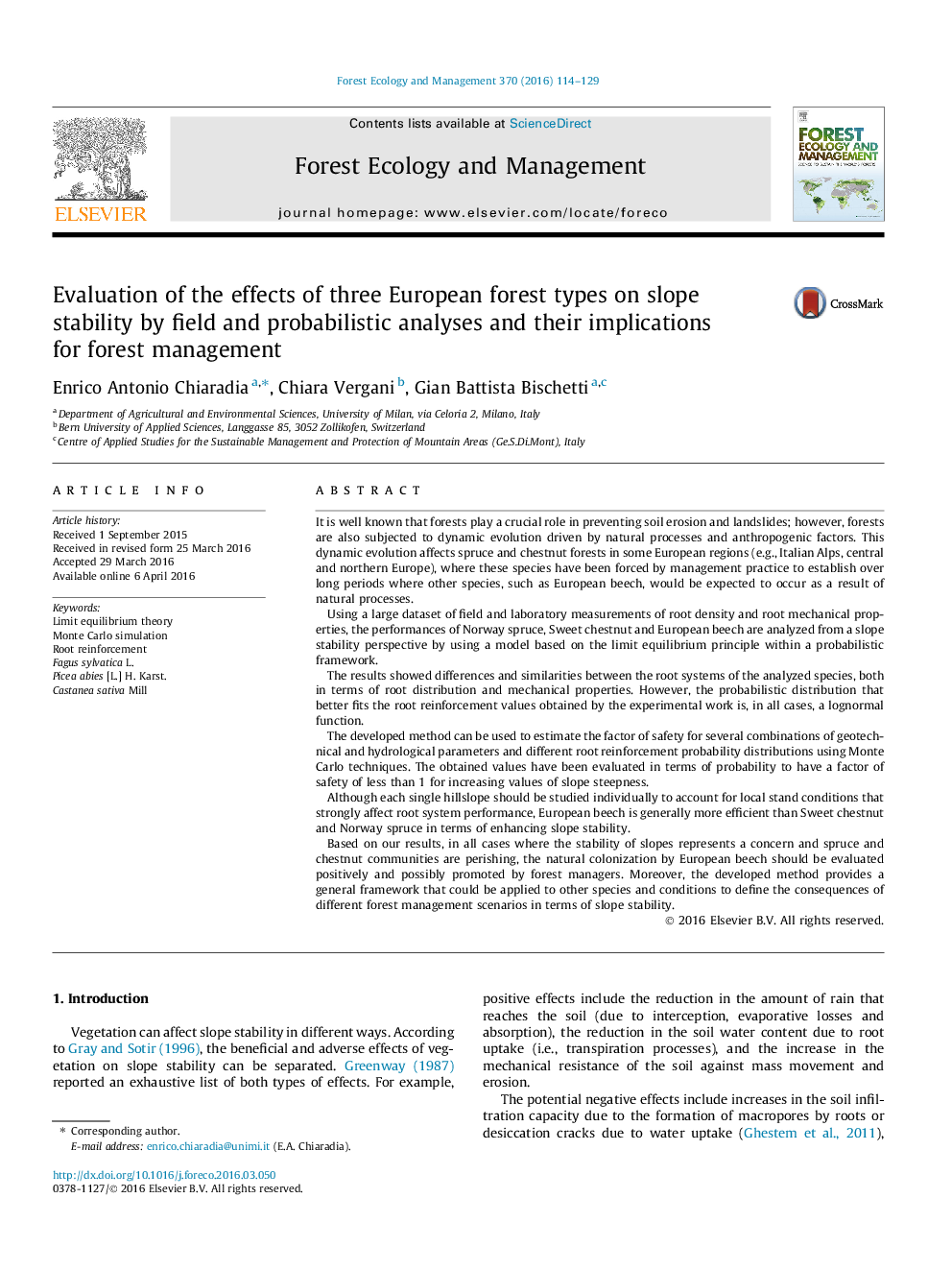| کد مقاله | کد نشریه | سال انتشار | مقاله انگلیسی | نسخه تمام متن |
|---|---|---|---|---|
| 86002 | 159156 | 2016 | 16 صفحه PDF | دانلود رایگان |
• A huge dataset was collected from both field and laboratory analysis.
• Infinite slope model was modified to include root reinforcement.
• A Monte Carlo approach was used to manage the natural variability.
• Beech communities have proved to be the most stabilizing forest in the tested cases.
• The framework is replicable for other comparisons.
It is well known that forests play a crucial role in preventing soil erosion and landslides; however, forests are also subjected to dynamic evolution driven by natural processes and anthropogenic factors. This dynamic evolution affects spruce and chestnut forests in some European regions (e.g., Italian Alps, central and northern Europe), where these species have been forced by management practice to establish over long periods where other species, such as European beech, would be expected to occur as a result of natural processes.Using a large dataset of field and laboratory measurements of root density and root mechanical properties, the performances of Norway spruce, Sweet chestnut and European beech are analyzed from a slope stability perspective by using a model based on the limit equilibrium principle within a probabilistic framework.The results showed differences and similarities between the root systems of the analyzed species, both in terms of root distribution and mechanical properties. However, the probabilistic distribution that better fits the root reinforcement values obtained by the experimental work is, in all cases, a lognormal function.The developed method can be used to estimate the factor of safety for several combinations of geotechnical and hydrological parameters and different root reinforcement probability distributions using Monte Carlo techniques. The obtained values have been evaluated in terms of probability to have a factor of safety of less than 1 for increasing values of slope steepness.Although each single hillslope should be studied individually to account for local stand conditions that strongly affect root system performance, European beech is generally more efficient than Sweet chestnut and Norway spruce in terms of enhancing slope stability.Based on our results, in all cases where the stability of slopes represents a concern and spruce and chestnut communities are perishing, the natural colonization by European beech should be evaluated positively and possibly promoted by forest managers. Moreover, the developed method provides a general framework that could be applied to other species and conditions to define the consequences of different forest management scenarios in terms of slope stability.
Journal: Forest Ecology and Management - Volume 370, 15 June 2016, Pages 114–129
